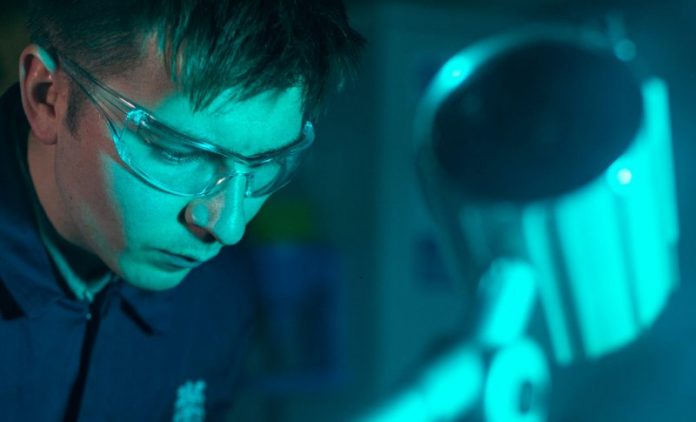As the UK rushes to fulfil its legal net zero obligations, businesses are facing pressure to adopt sustainable practices. With new legislation on the horizon, soon sustainability will no longer be something to aim for, but a legal business requirement.
But bringing about organisational change is a lot easier to talk about than to action. Having supported many businesses through this transitional period, I can tell you that the formula for success is a sincere desire for meaningful change from the top coupled with a drive to educate the workforce on green issues.
Why be sustainable?
You’ve heard it a thousand times before, but it bears repeating: going green is good for business. Adopting better practices not only allows companies to play their part in protecting the planet and the people that live on it, but it can also lead to new opportunities.
Increasingly, investments and contracts are going to businesses that can demonstrate their green values in action and not just in words. Consumers are now beginning to show preference for sustainable businesses on a mass scale. That means unsustainable businesses could essentially be cutting off major revenue streams.
Sustainable business initiatives also make sense from a cost-saving perspective as the price of waste disposal and energy consumption is significantly reduced.
Working for a green business can help to attract and retain the right talent. Being part of a sustainable company can be a motivational factor for staff, and can attract forward-thinking candidates.
As with any organisational change, achieving a sustainable vision takes every team member’s buy-in. And that takes education.
Educating tomorrow’s workforce
The Verdancy Group works closely with Morrison Construction, a leading contractor that delivers construction, investments and facilities management services across Scotland.
For Morrison Construction, sustainability is one of its greatest priorities. Its standard-setting environmental policies have seen the company cut waste and carbon emissions, adopt a green supply chain and educate tomorrow’s workforce on sustainable matters through curriculum support.
The company recognises that to fulfil its long-term commitments to sustainability, it needs to play a role in teaching sustainability skills. For that reason, Morrison Construction provides sponsorship and work experience support for learners studying courses related to construction and the built environment across four Scottish colleges.
As part of their sponsorship, the company provides college students with access to The Verdancy Group’s Waste in the Circular Economy course, which provides learners with a strong foundation in sustainability concepts, terms, legislation and practices. The course is credit-rated at SCQF Level 5, making it an attractive qualification for many employers across the UK.
This partnership is mutually beneficial for college students and the company itself. Students leave college having already learnt important sustainability skills which they can apply to future roles, and Morrison Construction can handpick students who have completed the course to join their team when needed, with the reassurance that new recruits are already equipped with the environmental insight necessary to work to their sustainable standards.
Every job is a green job
Examples like Morrison Construction go to show that every job can have a sustainable function if structured correctly. There is a tendency to associate ‘green jobs’ with STEM sectors like engineering and life sciences. But any job can be a green job if we want it to be. Imagine what it would it be like if everyone from your bartender to your mechanic to your local hairdresser was educated on sustainable issues.
Morrison Construction’s college sponsorship model is one that can easily be replicated within practically every industry. We need more leaders to start thinking about how they can support the development of sustainability skills throughout their sector.
To empower the future workforce and fill skills gaps, businesses and colleges can work together in partnership to educate students on sustainability.
Sustainability skills for everyone
Transforming attitudes in favour of sustainability takes a tremendous effort, particularly for long-established organisations where usual processes and practices are deeply instilled. At The Verdancy Group we often compare this transitional period to the arduous task of turning a cargo ship around.
Sustainable education is not just for new entrants to the workforce; existing staff also need training and support to understand the importance of sustainability. Businesses should consider where teams are lacking in their environmental understanding. Do they understand sustainability terminology? Do they need help to understand how to lower their own carbon footprints? Has the company’s sustainable vision been carefully explained?
While it’s certainly easier to achieve buy-in from new recruits who will be joining the team never having known anything other than sustainable practice, companies shouldn’t forget the value of educating their current workforce.
Change from the top
While sustainability education is a crucial aspect of turning a business green, it is not the most important one. For meaningful change to take place, an organisation’s leadership must show a sincere commitment to sustainability.
Often, that means going beyond the environmental standards currently in place.
Before introducing sustainability education programmes, leaders will need to take an objective assessment of their current practices. Are they truly committed to net zero targets, for example, or are they throwing money at carbon offset programmes without doing the hard work of reducing the organisation’s emissions? Are their environmental management accreditations really reflective of their sustainability practices, or are they just there for show?
Only when leaders show true commitment to the environment is it possible for sustainability education initiatives to take hold.
Final thoughts
If we are to be successful in our fight against climate change, we need everyone to be educated on sustainability issues. Let’s teach everyone how to care for the planet, no matter what industry they work in.
Next steps
Are you interested in teaching sustainability skills to your workforce? The Verdancy Group provides tailored sustainability courses to colleges and businesses across the UK.
Our Waste in the Circular Economy course is credit-rated at SCQF Level 5. Students receive high quality, engaging learning materials through an online platform.
Talk to us about our environmental education programmes.






